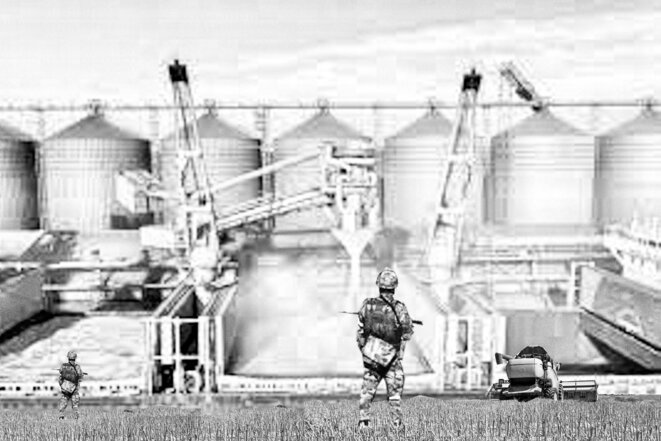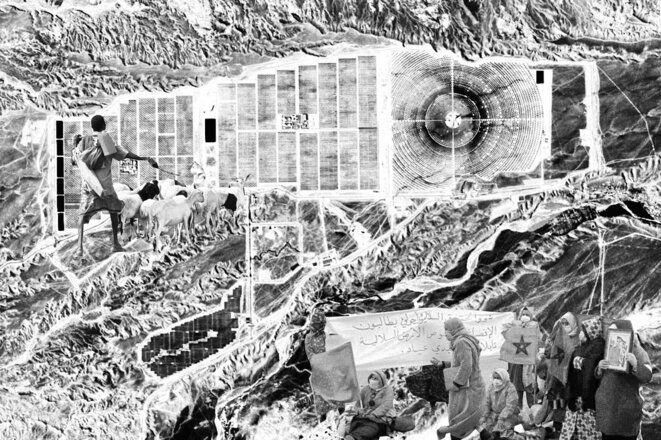
Blog suivi par 8 abonnés
Le blog de Berliner Gazette

À propos du blog
Berliner Gazette (BG) is a nonprofit and nonpartisan team of journalists, researchers, artists, and coders, experimenting with and analyzing emerging cultural and political practices. Since 1999 we have1…
been publishing berlinergazette.de under a Creative Commons License with more than 1,000 contributors. In dialogue with our international network we create annual projects, exploring the issues at hand not only in the form of text series but also conferences and books. Our latest projects include "Black Box East" (2021), "Silent Works" (2020), "More World" (2019), "Ambient Revolts" (2018), "Signals" (2017), "A Field Guide to the Snowden Files" (2017), "Friendly Fire" (2017), "Tacit Futures" (2016), "UN|COMMONS" (2015), "BQV" (2012), and "McDeutsch" (2006).
-
Roadmap for Degrowth: Towards Social, Economic, and Political Transformation
 The space of political imagination and action pushed open in this era of crises needs to be harnessed towards broader institutional and political change. And to that end, a degrowth politics capable of appealing to and mobilizing broad-based support is more needed today than ever, Bengi Akbulut argues in her contribution to the BG text series “After Extractivism.”
The space of political imagination and action pushed open in this era of crises needs to be harnessed towards broader institutional and political change. And to that end, a degrowth politics capable of appealing to and mobilizing broad-based support is more needed today than ever, Bengi Akbulut argues in her contribution to the BG text series “After Extractivism.” -
Building “People Power” Against the Sell Out of Serbia to Mining Corporations
 Since Serbia’s government has advanced the sell-out of the country on the global market, a popular uprising has been taking place. Exploring how the rebellious movement has applied five different practices to build “people power,” Masha Burina shares important lessons to learn in her contribution to the BG text series “After Extractivism.”
Since Serbia’s government has advanced the sell-out of the country on the global market, a popular uprising has been taking place. Exploring how the rebellious movement has applied five different practices to build “people power,” Masha Burina shares important lessons to learn in her contribution to the BG text series “After Extractivism.” -
Sustainable Agriculture? Climate Catastrophe and the Politics of “Food Security”
 Since the Ukraine invasion, Western media have once again been discussing “world hunger” – unsurprisingly, in a distorted form – claiming that Vladimir Putin, rather than capitalism, has caused it. Thus, tackling the ecological-economic complex, we need to rethink the politics of “food security,” as Jovana Dikovic argues in her contribution to the BG text series “After Extractivism.”
Since the Ukraine invasion, Western media have once again been discussing “world hunger” – unsurprisingly, in a distorted form – claiming that Vladimir Putin, rather than capitalism, has caused it. Thus, tackling the ecological-economic complex, we need to rethink the politics of “food security,” as Jovana Dikovic argues in her contribution to the BG text series “After Extractivism.” -
Critical Minerals And Settler Colonialism: Who Will Pay For The “Green” Transition?
 Critical minerals are propagated as “essential” for a “green” transition. China’s pivotal role on this market is countered in the West with “onshoring” initiatives. As the case of Canada shows, this means prolonging and expanding a form of domestic warfare known as settler colonialism, Shiri Pasternak and Jessica Dempsey argue in their contribution to the BG text series “After Extractivism.”
Critical minerals are propagated as “essential” for a “green” transition. China’s pivotal role on this market is countered in the West with “onshoring” initiatives. As the case of Canada shows, this means prolonging and expanding a form of domestic warfare known as settler colonialism, Shiri Pasternak and Jessica Dempsey argue in their contribution to the BG text series “After Extractivism.” -
Europe’s Energy Needs: Green Colonialism and Green Grabbing in North Africa
 Europe’s leaders are using the climate crisis as an opportunity to extend and expand colonial influence over Africa. Invoking that “we’re all fighting against a common enemy,” they advance “clean technology” projects that reproduce the inequalities between North and South, and fuel the climate crisis, Hamza Hamouchene argues in his contribution to the BG text series “After Extractivism.”
Europe’s leaders are using the climate crisis as an opportunity to extend and expand colonial influence over Africa. Invoking that “we’re all fighting against a common enemy,” they advance “clean technology” projects that reproduce the inequalities between North and South, and fuel the climate crisis, Hamza Hamouchene argues in his contribution to the BG text series “After Extractivism.” -
The Power to Say No: Debt Cancellation and a Liberatory Income
 How can we wager our future on the legacies and claims of those who – then as now – have been plunged into existential hardship by the ecological-economic complex? And how can we make such struggles a source of inspiration for a common cause? In his contribution to the BG text series “After Extractivism” economic anthropologist Julio Linares is looking for answers.
How can we wager our future on the legacies and claims of those who – then as now – have been plunged into existential hardship by the ecological-economic complex? And how can we make such struggles a source of inspiration for a common cause? In his contribution to the BG text series “After Extractivism” economic anthropologist Julio Linares is looking for answers. -
The Politics of Extreme Debt and Climate Change Adaptation in the Global South
 Extreme debt is getting out of hand, especially in Africa and the Global South at large, where economic and climate crises are intertwined, fueling each other and making it clear that the inner and outer limits of capital have been reached, as Tomasz Konicz argues in his contribution to the BG text series “After Extractivism.”
Extreme debt is getting out of hand, especially in Africa and the Global South at large, where economic and climate crises are intertwined, fueling each other and making it clear that the inner and outer limits of capital have been reached, as Tomasz Konicz argues in his contribution to the BG text series “After Extractivism.” -
The Specters of Transition: From Ekoglasnost to the European Green Deal
 The European Green Deal further nurtures and exploits the devastating effects of the post-socialist Transition. Thus, envisioning a shared, sustainable, and just future, we need to re-evaluate the real and imagined costs of transforming the world into a capitalist playing field, as Tsvetelina Hristova argues in her contribution to the BG text series “After Extractivism.”
The European Green Deal further nurtures and exploits the devastating effects of the post-socialist Transition. Thus, envisioning a shared, sustainable, and just future, we need to re-evaluate the real and imagined costs of transforming the world into a capitalist playing field, as Tsvetelina Hristova argues in her contribution to the BG text series “After Extractivism.” -
Peak Soil: Why the Climate Crisis Urges Us to Reinvent the Politics of Space
 The COVID-19 pandemic-related crisis surge, along with rising rents on the real estate market, has led to a rapid increase in the number of homeless people facing extreme weather conditions such as heat waves. It’s high time to reflect on the land and housing issue, as Ela Kagel argues in her contribution to the BG text series “After Extractivism,” focusing on the case of Berlin.
The COVID-19 pandemic-related crisis surge, along with rising rents on the real estate market, has led to a rapid increase in the number of homeless people facing extreme weather conditions such as heat waves. It’s high time to reflect on the land and housing issue, as Ela Kagel argues in her contribution to the BG text series “After Extractivism,” focusing on the case of Berlin. -
The Opposite of Extractivism? Resource Imperialism Under Calls for “Green Transition”
 Imperial relations in geostrategic resources, notably hydrocarbons, are nowadays associated with what appears at first glance to depart from or reverse extractivism. However, ultimately imperial relations are being extended, reducing energy sovereignty and ecological justice for states of the Global South, as Anna Zalik shows in her contribution to the BG text series “After Extractivism.”
Imperial relations in geostrategic resources, notably hydrocarbons, are nowadays associated with what appears at first glance to depart from or reverse extractivism. However, ultimately imperial relations are being extended, reducing energy sovereignty and ecological justice for states of the Global South, as Anna Zalik shows in her contribution to the BG text series “After Extractivism.”
- Page précédente
- 1
- 2
- 3
- 4
- 5
- …
- 9
- Page suivante


